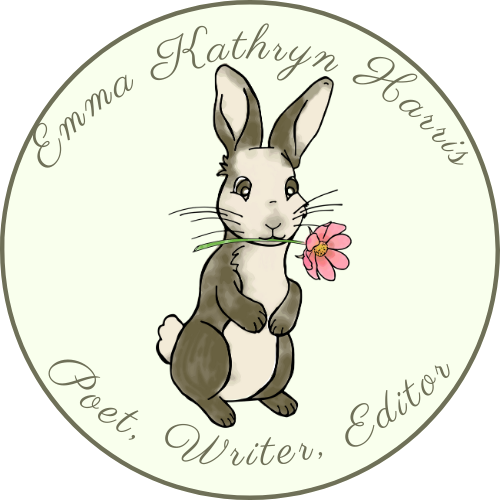The dream is over only when you have become complacent.”
Lorin Morgan-Richards, author
It can be discouraging when your submissions — whether poetry, short stories, queries, essays or articles — are rejected or ignored. And if you’ve been submitting for years with very little to show for your efforts, well, join the club.
If you are like me, you probably write a lot in various forms and several times a week or every day. Then you research media outlets for your articles, essays and poetry to ascertain what is a good fit for your particular work. You read several articles and poems to get a feel for the outlet and what they typically publish so you’ll know if it is right for you. You follow the submission guidelines to a “T” as they say, and then…crickets. For months. And then you see an email response: “Sorry, not a good fit.”
Sigh.
It is a lonely road. You put in your best efforts, and for what?
There are the times, I’m sure, you are tempted to admit defeat and tell yourself you are not good enough. But giving up is the real failure. Until then, you need a bit of resilience to help you be patient.
In the meantime, how can we keep from being overly discouraged? What practical steps can we take to stay motivated?

Stay focused on your objectives
When we get into our own heads, sometimes we are not nice or fair to ourselves. Many of us face imposter syndrome, telling ourselves we are not good enough when in fact, we are better than we give ourselves credit for.
Or we read about our colleagues and others who are getting their books, poetry and essays published, while our multiple submissions are rejected or still waiting for responses.
We push ourselves, we work hard, we take classes and workshops, we write 1,000-3,000 words a day, but some days it seems our hard work is for nothing.
Those are the negative thoughts we need to push aside. They will appear uninvited — it’s normal — but we don’t have to invite them in.
Instead, think about your objectives. Why do you write? Why are you drafting particular stories or essays? Or the one novel you’ve been pushing yourself to edit and polish?
Everyone’s writing goals are different, but most of us agree we want to see our work out there, wherever there is and whatever form we need it.
To help you stay focused on your objectives, write them down or print them out to put in front of you to review each time you sit down to write.
If you focus on your objectives, that will propel you forward, even when your negativity comes knocking.
To help you stay focused on your objectives, write them down or print them out to put in front of you to review each time you sit down to write.

7 Practical steps to keep us uplifted
(1) Try to imagine your book on the shelf in your favorite bookstore, with your newest loyal fan reading the back cover and the first few pages. Your fan smiles then tucks the book into her basket to take to the counter to buy it. How does that make you feel, you fly on the wall?
Or your article or poem printed (or online) in your favorite literary journal and people are reading it, reflecting on its meaning, nodding in agreement. Are you smiling at their reaction?
All of us want our work and talent to be acknowledged. We want to be appreciated and valued. Those are normal human reactions. So imagine your work being cherished by others.
(2) Think about what success means to you. Success means different things to different people. Whether that involves money, book sales, accolades, awards, writing as a career — that is up to you and how you see success.
(3) Stop comparing yourself to others. Remember, some have been at this practice for years. Still others might have had the right timing. Writing, as you know, is subjective. Your life and responsibilities are distinct from someone else’s. Look at your circumstances and what works for you.
(4) Don’t take it personal. As mentioned, writing is subjective. The editor or agent or judge has his reasons for passing up your work, and it is not you. Really. The writer you is disappointed, but the professional you knows you simply need to send it elsewhere.
Think about what success means to you.
(5) Be reasonable with your goals. Your present circumstances and responsibilities will always dictate how, when, and what you write. You might have limited pockets of time. Perhaps you are dealing with a chronic illness or caring for a loved one that restricts your time and your mental and emotional stamina. You might be in the middle of your novel when a life-altering event occurs and forces you to pause. You might have a full-time job. Not every writer is retired or has disposable income and unlimited time. Give yourself grace and look at what will work for you in your current situation.
(6) Go for a walk in a garden or beautiful park. Since many of us spend an exorbitant amount of time in front of a computer or other device, especially when we are researching and writing, it is good to step away and breathe fresh air. I have written multiple times about how creation helps us physically, mentally, emotionally and psychologically. It also helps our creative faculties when we might be stuck in our writing. Stepping away from our work is helpful for our creativity because our brains need a break. Birds and flowers help us to not take ourselves too seriously. At least, I think so.
(7) Write something different. I write a lot of business material, including newsletters, and while I enjoy my work, I need to step away from the work I need to do and write something I truly want to write. Poetry, short stories, novels, essays, and these blog posts are enjoyable to me. I feel more creative because it is a varied kind of writing. Even if most of your writing is creative, try diverging. For example, if you write fiction, try writing poetry or an essay. Review writing prompts, such as these from “Poets and Writers” or “Writer’s Digest,” to inspire a different kind of creativity. Your writing does not have to be long, just something to pull you away from yourself briefly. And you can still feel productive.
Stepping away from our work is helpful for our creativity because our brains need a break.
These are a few ideas to help you refocus on what is important to you with your writing goals and objectives. Review them when you have those days you want to be negative. Writing is both fulfilling and exhausting. We put our all into what we write. A lot of emotion is tied into our work. Nonwriters do not understand our pain!
Remember, you only fail if you quit. But if you keep writing, and keep trying, you prove your success by being patient and focused.
You are not alone.






